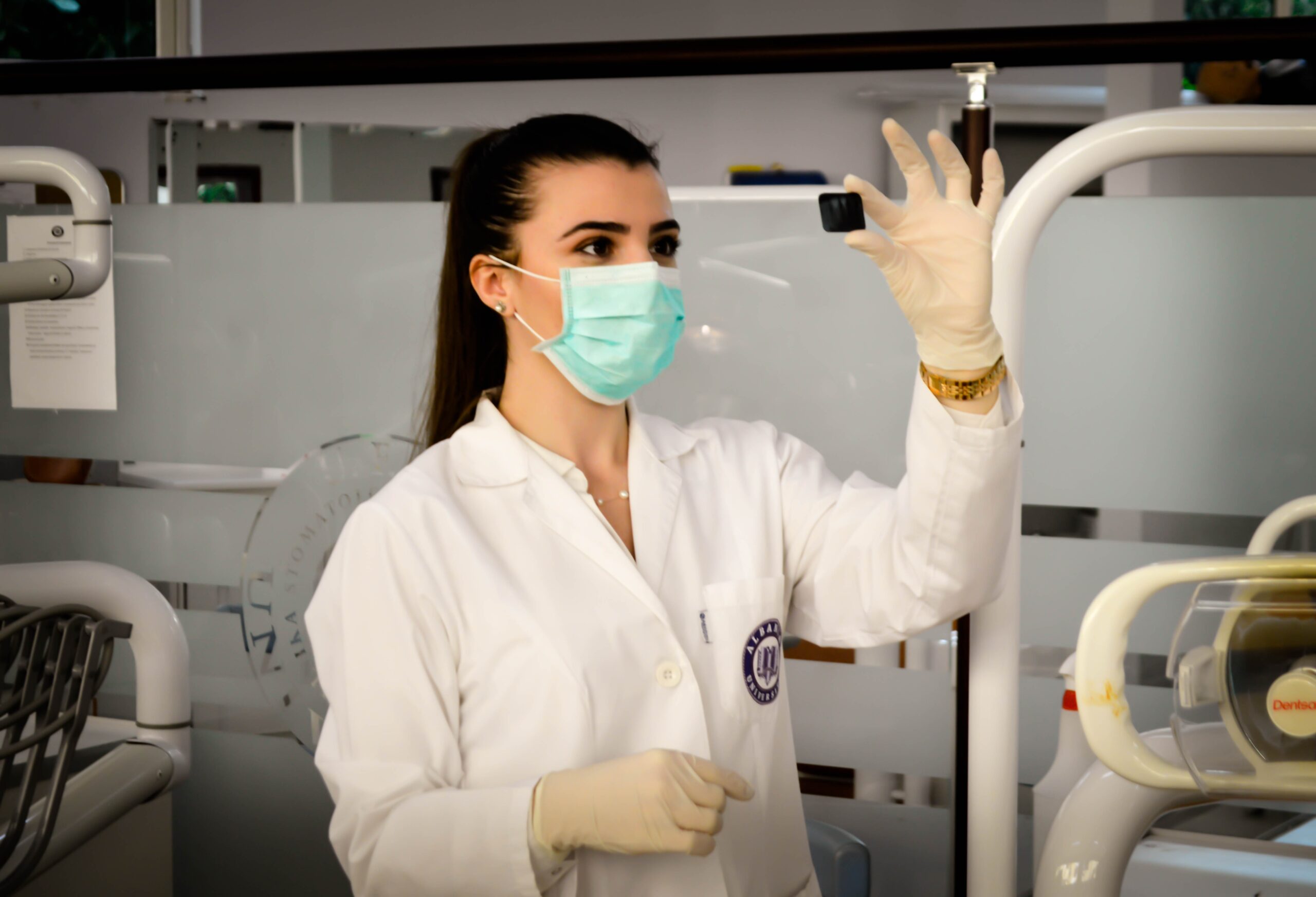Prostatitis, a common condition characterized by inflammation of the prostate gland, has become a growing concern for many men. But what if this condition not only causes discomfort and pain but also affects fertility? In this article, we will explore whether prostatitis can indeed impact male fertility and delve into the potential consequences it may have on a man's reproductive health. So, if you've been wondering about the connection between prostatitis and fertility, keep reading to find out more. Yes, it can. Prostatitis is a condition that inflames the prostate gland, which is a crucial part of the male reproductive system. It can lead to various symptoms that can have an impact on fertility. In this comprehensive article, we will explore the different aspects of prostatitis, its effects on the male reproductive system, sexual health, diagnostics, treatment options, lifestyle changes, and the potential influence of prostatitis treatment on fertility. By understanding these aspects, you can be better informed about prostatitis and its potential impact on fertility.
Understanding Prostatitis
Definition of Prostatitis
Prostatitis is a medical condition characterized by the inflammation of the prostate gland. The prostate gland is a small, walnut-shaped organ located just below the bladder in males. It plays a crucial role in the male reproductive system as it produces a fluid that nourishes and transports sperm during ejaculation.
Types of Prostatitis
There are four main types of prostatitis:
-
Acute bacterial prostatitis: This type of prostatitis is caused by a bacterial infection and typically develops suddenly. It can cause severe symptoms and requires immediate medical attention.
-
Chronic bacterial prostatitis: Unlike acute bacterial prostatitis, chronic bacterial prostatitis is a long-term condition. It is characterized by recurring urinary tract infections caused by bacteria in the prostate gland.
-
Chronic prostatitis/chronic pelvic pain syndrome (CP/CPPS): This is the most common type of prostatitis and is not caused by a bacterial infection. It is characterized by chronic pelvic pain and can significantly impact the quality of life.
-
Asymptomatic inflammatory prostatitis: As the name suggests, this type of prostatitis does not cause any symptoms. It is usually diagnosed incidentally during medical examinations for other conditions.
Common Symptoms of Prostatitis
The symptoms of prostatitis can vary depending on the type and severity of the condition. Common symptoms include:
- Pain or discomfort in the pelvic area, lower back, or genitals
- Frequent urge to urinate
- Painful urination
- Difficulty starting or maintaining urination
- Blood in semen or urine
- Sexual dysfunction
- Flu-like symptoms (in cases of acute bacterial prostatitis)
Prostatitis and its Impact on Male Reproductive System
Role of Prostate in Male Reproductive System
The prostate gland plays a vital role in the male reproductive system. It produces a fluid that mixes with sperm to form semen. This fluid provides essential nutrients and protection for the sperm, helping them survive and function properly. The prostate gland also produces specific enzymes that play a crucial role in sperm activation and motility.
Impact of Prostatitis on Prostate Function
Prostatitis can significantly affect the functioning of the prostate gland. Inflammation and infection can lead to changes in the composition of prostatic fluid, affecting its ability to nourish and protect sperm. The quality of the fluid may deteriorate, making it less conducive for sperm survival and motility. Additionally, the inflammation and pain caused by prostatitis can interfere with normal prostate function, potentially leading to further complications.
How Prostatitis Can Affect Fertility
Negative Effect on Sperm Quality
Prostatitis can have a negative impact on sperm quality. The inflammation and infection associated with prostatitis can lead to oxidative stress, which can cause damage to the sperm cells. This can result in decreased sperm counts, impaired sperm motility, and abnormalities in sperm shape (morphology), all of which can significantly reduce fertility.
Influence on Seminal Fluid
As mentioned earlier, prostatic fluid plays a crucial role in nourishing and protecting sperm. In cases of prostatitis, the quality and composition of the seminal fluid may be compromised. This can affect the overall environment in which sperm survive and function, leading to reduced fertility.
Impaired Ejaculatory Function
Prostatitis can also impair ejaculatory function. The inflammation and pain associated with the condition can cause discomfort or pain during ejaculation, leading to a reduction in sexual activity or incomplete ejaculation. This can affect the delivery of sperm to the cervix, reducing the chances of conception.
Prostatitis and Sexual Health
Impact on Sexual Function
Prostatitis can have a significant impact on sexual function. The pain and discomfort associated with the condition can lead to decreased libido and sexual desire. It can also cause pain or discomfort during sexual activity, leading to difficulties in achieving and maintaining erections. These sexual dysfunctions can further contribute to fertility issues.
Connection to Erectile Dysfunction
Erectile dysfunction (ED) and prostatitis may be closely linked. While prostatitis itself does not directly cause ED, the pain and discomfort associated with the condition can contribute to it. Psychological factors such as anxiety, depression, and stress related to prostatitis can also contribute to the development or worsening of ED.
Emotional and Psychological Effects
Prostatitis can have significant emotional and psychological effects on individuals. Dealing with chronic pain, discomfort, and fertility concerns can lead to anxiety, stress, depression, and a decreased overall quality of life. It is important to address these emotional and psychological effects to support overall well-being during prostatitis treatment.

Diagnosing Prostatitis
Methods for Diagnosing Prostatitis
To diagnose prostatitis, various methods may be employed by healthcare professionals. These may include:
-
Medical history and physical examination: A healthcare provider will inquire about your symptoms and perform a physical examination, including a digital rectal examination (DRE), to assess the prostate gland.
-
Urine tests: Urine samples may be collected to check for signs of infection, such as the presence of bacteria or white blood cells.
-
Prostate fluid analysis: In some cases, a sample of prostatic fluid may be collected through a prostate massage. This fluid is then analyzed for signs of infection or inflammation.
-
Imaging tests: Imaging tests, such as an ultrasound, may be conducted to visualize the prostate gland and assess its size and structure.
Differential Diagnosis
Prostatitis can sometimes be challenging to diagnose as its symptoms overlap with other conditions, such as urinary tract infections or bladder disorders. A healthcare provider will consider the medical history, symptoms, and test results to differentiate prostatitis from other potential causes.
Prostatitis and PSA Levels
Prostate-specific antigen (PSA) is a protein produced by the prostate gland. Elevated PSA levels can indicate various prostate conditions, including prostatitis. However, it is important to note that prostatitis can elevate PSA levels temporarily and does not necessarily indicate prostate cancer. A healthcare provider will interpret PSA levels alongside other diagnostic information to make an accurate diagnosis.
Treatment Options for Prostatitis
Antibiotics and their Role in Treating Prostatitis
Antibiotics are commonly prescribed to treat prostatitis caused by bacterial infection. The choice of antibiotics will depend on the bacteria identified through diagnostic tests. It is important to complete the full course of antibiotics as prescribed by a healthcare provider to effectively eradicate the infection.
Role of Pain Relievers
Pain relievers, such as nonsteroidal anti-inflammatory drugs (NSAIDs), may be recommended to alleviate the pain and discomfort associated with prostatitis. These medications can provide temporary relief and may be used in combination with other treatment approaches.
Use of Alpha Blockers
Alpha blockers are medications commonly prescribed to relax the muscles near the prostate gland and bladder neck. They can help improve urinary symptoms associated with prostatitis, such as frequent urination or difficulty urinating. Alpha blockers may be prescribed in combination with other treatment modalities.

Surgical Intervention for Prostatitis
Need for Surgical Intervention
Surgical intervention for prostatitis is rarely necessary. It is usually reserved for cases where other treatment approaches have been ineffective, or when there are specific complications, such as abscess formation. The decision for surgical intervention will be made by a healthcare provider based on individual circumstances and the severity of the condition.
Types of Surgery for Prostatitis
There are several surgical procedures that may be considered for prostatitis. These include transurethral resection of the prostate (TURP), transurethral incision of the prostate (TUIP), or in rare cases, open prostatectomy. These surgical procedures aim to relieve urinary symptoms and address specific complications.
Risks and Complications of Surgery
As with any surgical procedure, there are risks and potential complications associated with surgical intervention for prostatitis. These may include infection, bleeding, urinary incontinence, ejaculatory dysfunction, erectile dysfunction, and damage to surrounding structures. It is essential to discuss these risks with a healthcare provider and weigh them against the potential benefits of surgery.
Lifestyle Changes to Manage Prostatitis
Exercises for Prostatitis Management
Certain exercises may help manage the symptoms of prostatitis. Pelvic floor exercises, such as Kegels, can help strengthen the pelvic floor muscles, potentially improving urinary symptoms and reducing pain or discomfort. It is important to consult with a healthcare provider or physical therapist before starting any exercise regimen.
Diet and Nutrition
While no specific diet has been proven to cure prostatitis, maintaining a healthy diet can support overall prostate health. This includes consuming a balanced diet rich in fruits, vegetables, whole grains, lean proteins, and healthy fats. Avoiding excessive caffeine, alcohol, spicy foods, and foods that may irritate the bladder can also be beneficial.
Proper Hydration
Staying properly hydrated is important for overall health, including prostate health. Drinking an adequate amount of water can help flush out bacteria and minimize the risk of urinary tract infections. It is recommended to aim for at least 8 cups of water per day, or more depending on individual needs and activity levels.
Potential Influence of Prostatitis Treatment on Fertility
Role of Antibiotics and other Medications
Effective treatment of prostatitis, particularly when caused by bacterial infection, can help improve sperm quality and overall fertility. By eradicating the infection and reducing inflammation, antibiotics and other medications can potentially restore normal prostate function, improving the conditions for sperm production and transport.
Impact of Surgical Intervention
Surgical intervention for prostatitis, when necessary, is generally focused on relieving symptoms and addressing complications rather than directly improving fertility. However, by alleviating urinary symptoms and potential obstructions, surgical intervention may indirectly improve fertility by facilitating normal sexual activity and ejaculation.
Future Fertility after Prostatitis Treatment
The effect of prostatitis on fertility can vary depending on the severity, duration, and individual factors. For many individuals, fertility can be restored with appropriate treatment and management of prostatitis. It is important to work closely with healthcare providers and follow the recommended treatment plan to maximize the chances of future fertility.
Preventing Prostatitis to Preserve Fertility
Practicing Safe Sex
Practicing safe sex can reduce the risk of sexually transmitted infections (STIs) that can lead to prostatitis. Using barrier methods, such as condoms, can help prevent the transmission of STIs and reduce the likelihood of developing prostatitis.
Healthy Lifestyle and Regular Healthcare Checks
Maintaining a healthy lifestyle and regular healthcare checks are important for overall prostate health. This includes regular exercise, a balanced diet, managing stress levels, and periodic check-ups with a healthcare provider. Early detection and treatment of any potential prostate issues can help preserve fertility.
Recognizing and Responding to Early Warning Signs
Being aware of the early warning signs of prostatitis can help prompt early intervention and potentially prevent fertility issues. If you experience any symptoms such as pelvic pain, urinary symptoms, or sexual dysfunction, it is important to seek medical attention promptly to receive an accurate diagnosis and appropriate treatment.
In conclusion, prostatitis can indeed affect fertility. The inflammation, infection, and associated symptoms can have a negative impact on sperm quality, seminal fluid, and ejaculatory function. Additionally, prostatitis can affect sexual health, including sexual function and psychological well-being. However, with proper diagnosis, treatment, and lifestyle modifications, individuals with prostatitis can manage their condition effectively and preserve fertility. It is important to work closely with healthcare providers and address any concerns or symptoms promptly to optimize reproductive health and overall well-being.

